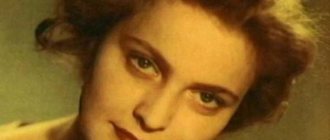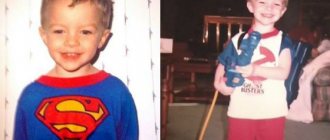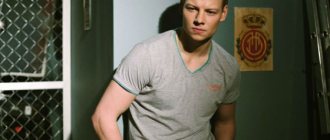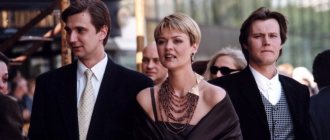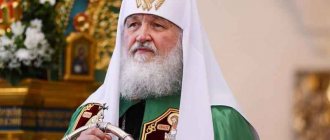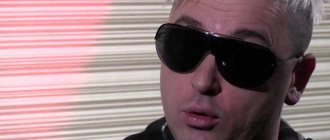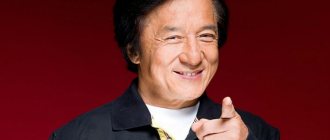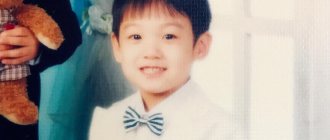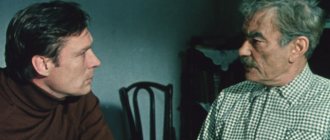Sami Naseri: biography
Sami Naceri is a famous French actor who became internationally popular thanks to his role as the expressive driver Daniel Morales in the 4 parts of the blockbuster Taxi. The actor's real name is Said, but he took the diminutive that he was called at home as a pseudonym.
Sami Naceri in his youth
Sami was born in Paris, into a large family. His mother Jacqueline Leroux was a native Frenchwoman, and his father Djilali Naceri was an emigrant from Algeria. The boy has 6 brothers and sisters. One of the brothers, Larbi, under the pseudonym Bibi Naseri, also became a famous film actor in France.
When Said was 7 years old, the family moved to Fontenay-sous-Bois, a suburb of the French capital. There the boy went to school, which he never graduated from, dropping out at the age of 16. The reason was the difficult financial situation in the family, as well as the very difficult character of the teenager, because of which he regularly had conflicts and troubles. Naseri began looking for part-time jobs and odd jobs.
Actor Sami Naseri
In his youth, he was an outcast, constantly on the verge of breaking the law. At the age of 18, he began using drugs, which ultimately led to a store robbery, arrest and trial, which sentenced the young man to 5 years in prison. Naseri served 4 years and was released early.
Said's childhood
Said Naseri, whose biography will be described below, was born in 1961 in Paris. He would take the pseudonym Sami later, when he began acting in films. He grew up in the family of a native French woman, Jacqueline Leroux, and a native of Algeria, Djilali Naceri. One of Said Larbi's many brothers also later became an actor. He is known to the public as Bibi Naseri.
When Said was seven years old, his family left Paris and moved to the suburb of Fontenay-Sue-Bois. The guy grew up a real tomboy, sometimes his antics crossed the line of innocent youthful fun. The difficult financial situation of his parents led to constant conflicts, and he often did not spend the night at home, spending most of his time on the streets. At the age of sixteen, Said dropped out of school and got involved with the world of drug dealers, scammers, and thieves. Up to a certain point, he managed to balance on the brink of the law, but at the age of eighteen he was caught robbing a store and went to prison. The court sentenced the future actor Naseri to five years in prison, but he was released after four years due to good behavior.
Movies
After Sami Naseri accidentally became an extra in the comedy film “The Inspector” in 1980, he set himself the goal of becoming a professional actor. But until the mid-90s, he continued to be used only in extras and episodes. The situation changed in 1994. First, Sami starred in the youth social television film about teenagers "Brothers: Red Roulette", where he perfectly portrays a guy from the suburbs, sliding down an inclined path. The Arab origin also came in handy - the image turned out to be quite realistic. The actor claims that, by and large, he played himself, because his character even has a similar name - Sami.
Sami Naceri in the movie "Paradise"
A year later, film director Thomas Gilou invites Naceri to his tragicomic film “Paradise”. Here the actor again plays a socially incapable suburban guy. The experience of the previous film helped the actor to even better convey the state of people who do not have their place in life. For his performance, Sami Naceri received the first awards in his career - the Golden Leopard at the Locarno International Film Festival and the Paris Film Festival.
After these films, the film actor became famous in France. But he gained worldwide popularity after the release of the crime comedy Taxi in 1998. The film was directed by the famous French director Luc Besson, who was already familiar with Naceri: they collaborated on the set of the drama “Leon”, where Sami had the role of a policeman in a helmet in one of the last scenes, as well as in the creation of the video clip “Nés sous la même étoile” "French group "IAM".
Sami Naceri in the movie "Taxi"
It’s interesting that experts rated “Taxi” very coolly, criticizing the formulaic script, but the commercial success of the film was deafening. Viewers fell in love with a young taxi driver from Marseille, who cannot imagine life without extreme speed and super-powerful car engines. The success of the film immediately led to three sequels, the names of which differed only in serial numbers. The popularity of this series of films was such that Hollywood and Bollywood film companies made their own remakes. Sami Naceri received the French Cesar film award for best actor of the year for the first part of Taxi.
Among other films with his participation, it is worth noting the war drama “Patriots” directed by Rashid Bouchareb about the Second World War. Sami Naceri played Yassir, one of the 4 soldiers of the French army, who, with the help of such a small team and at the cost of their own lives, for a long time kept a small village in Alsace from being captured by fascist troops. The film showed discrimination in the French army towards soldiers of Algerian origin. For this role, Naceri received a silver award at the Cannes Film Festival in 2006.
Sami Naceri in the movie "Patriots"
In total, Sami Naseri’s creative biography includes about 40 acting works.
Biography[ | ]
Early years[ | ]
Born in Paris (in the IV arrondissement), his mother Jacqueline is a Frenchwoman from Normandy, his father Djilali is an Algerian (Kabile), he came from Algeria before it gained independence. Sami Naceri grew up in modest housing on Rue Saint-Martin with six siblings, one of whom, Larbi (Bibi) Naceri, also became an actor. His family later moved to the Parisian suburb of Fontenay-sous-Bois.
Naseri left school at the age of 16 and took odd jobs in the following years.
Career[ | ]
For several years he tried to find his place on stage, but his efforts were rewarded only by participating in crowd scenes. It was at this time that he decided to change his name from Saïd to Samy.[4]
Director Thomas Gilou (French) Russian) gave him his first real chance - the role of Nordine in the film “Paradise (film, 1995) (French) Russian.” Naseri impressed critics and won two awards at the Locarno International Film Festival and the Paris Film Festival.
Naseri's career took off after an unexpected meeting with director and producer Luc Besson. They met on the set of the film Leon (1994), in which the young actor played the role of a policeman in a helmet in one of the last scenes. Their paths will cross again a few years later, on the set of the video Nés sous la même étoile (Born under the same star)
IAM groups.
In his film, Besson gives Sami the role of Daniel, a young taxi driver from Marseille with a passion for powerful cars and crazy speeds[4]. Despite lukewarm reviews, Taxi (1998) turns out to be a commercial success. This pushes producers to make sequels: “Taxi 2” (2000), “Taxi 3” (2003) and “Taxi 4” (2007), in which a handsome taxi driver, against his will, serves the authorities.
In 2006, the actor received the award for Best Actor in the film “The Patriots” at the Cannes Film Festival (together with other actors from this film).
After 2009, due to frequent problems with the law, he began to appear on television less and less often. In 2020, he played in the theatrical production of “L'indien cherche le Bronx” at the Théâtre du Gymnase. Since 2020, he has been starring in the film “Crab,” written and directed by his brother Bibi Naseri.
Personal life[ | ]
Sami Naceri has a son, Julian, born in 1995. In 2005, Sami married actress Marie Guillard.
Problems with the law[ | ]
Sami Naceri in 2000
Since 2000, he has regularly appeared in court reports for violations that have landed him in prison several times. Punished for assault, insults, and driving while intoxicated.
In 2003, Naseri was detained for road rage and subsequent beating of the driver of another car. For this, he was sentenced to eight months of suspended prison, a fine of 6,000 and deprivation of his driver's license for three years. The next incident occurred with the actor in November 2005: at a meeting in a restaurant, Naseri beat up a Von Dutch stylist, for which he was sentenced to two months in prison, which he had to serve in full.
The next high-profile incident occurred in February 2007[5]. For the attempt on the life of a nightclub security guard, Naseri was sentenced to nine months in prison, six of which were suspended. The actor was also given a three-year probationary period with mandatory completion of a course of treatment. At the same hearing, the court ruled on another case - insult to police officers who were assigned to Naseri after he took a dangerous dose of medication on the night of January 17-18. The court sentenced the actor to a fine of 5,000 € and a month in prison, which will not be applied yet.
On October 14, 2008, Sami Naceri inadvertently hit a Parisian police officer. In addition, he was driving while his driver's license had been revoked. The policewoman was not seriously injured. On November 5, the Paris Correctional Court sentenced Sami Naceri to six months of strict imprisonment and a 7,500 € fine, and also ordered him to undergo treatment for alcoholism[6].
In January 2009, Naceri was again in custody: this time for stabbing[7][8].
On May 31, 2011, the actor went to prison for 16 months, having failed his probation[9].
On July 6, he was taken to the prison hospital and placed in the psychiatric ward after attempting suicide. The actor tried to cut his own throat. According to information reported by prison staff, Naseri did not try to kill himself and there is no talk of any suicide attempt - the actor’s hospitalization was a consequence of his kidney transplant operation[10].
On June 24, 2013, he was arrested for a fight with drug dealers[11].
In mid-January 2014, I got into a fight with one of my girlfriends. The actor and his partner appeared in court on March 18[12].
On March 1, 2014, he was detained for threatening a woman with a knife[13]. On August 14 and October 13, 2014, he was detained for domestic violence[14].
In May 2020, he was detained by police in Cannes with a Ukrainian driver’s license[15].
On August 5, 2020, he was beaten as a result of a conflict in a Moscow bar, where he was with his brother Bibi[16].
Personal life
Sami Naseri had many fleeting romances and short relationships. In 1995, his son Julian was born, who played with his father in the 3rd part of Taxi.
Sami Naceri and Audrey
In 2005, Sami married French film actress Marie Guillard, but after 3 years they separated, after which he lived in a civil marriage with a young woman named Audrey until 2014.
The actor maintains a verified account on Instagram. 7.5 thousand fans are subscribed to Naseri’s page, in front of whom the star does not hesitate to make faces in photographs. In addition to his own photos, the actor posts drawings from fans, posters for events that interest him, and screenshots of articles and news reports that he likes.
Sami Naceri now
In 2020, the actor appeared in the video for his own song “Une Seconde chance.”
In May 2020, the actor was again taken into custody by the police. At the 69th Cannes Film Festival, police detained the actor’s car, after which Sami Naseri presented his Ukrainian license. The actor lost his French driver's license a long time ago, after repeated violations of traffic rules in his native country.
It is not known exactly where the actor got his foreign rights. Police admit that the Ukrainian license may be fake, but lawyers note that foreigners can legally obtain a Ukrainian license by passing a driving test or presenting a driver's license from their country.
The actor spent several hours in the police station and paid a fine of 10 thousand euros, after which he was released. Representatives of the actor and the festival did not comment on this incident.
Actor Sami Naseri
In February 2020, the French comedy Superalibi premiered, in which Naceri played the cameo role of a taxi driver.
In May of the same year, the actor starred in a Russian advertisement for the development company PNK Group, whose business is related to industrial and warehouse real estate. Naseri appeared in the video in the famous image of Daniel from the Taxi films. In the story, the character showed clients a new building: the actor drove a taxi and at the same time talked about the advantages of the design. At the end of the video, the taxi crashed into the wall, but the building was not damaged by the accident, and the employees in the next room did not even pay attention to the noise muffled by the walls.
Relations with the law
Naseri is also known for repeated violations of the law. He was sentenced to various punishments for assault, insults, and driving while intoxicated.
In 2003, Naseri was detained for road rage and subsequent beating of the driver of another car. For this, he was sentenced to eight months of suspended prison, a fine of 6,000 € and deprivation of his driver's license for three years. The next incident occurred with the actor in November 2005: at a meeting in a restaurant, Naseri beat up a Von Dutch stylist, for which he was sentenced to two months in prison, which he had to serve in full.
Sami Naseri: latest news
Sami Naseri will star in the film “Teacher” in Moscow
Today
French actor Sami Naceri will take part in the filming of the film “Teacher”, which will begin in Moscow in May-June 2020...
In Bashkiria, a teenager won a car from Taxi
September 18, 2020
A schoolboy from Bashkiria named Ilnur became the new owner of the Peugeot 406 from the movie “Taxi”.
The “Taxi” star was filmed in a nightclub with a Russian model
September 14, 2020
French actor Sami Naceri, known for the film “Taxi,” was photographed in a Moscow nightclub together with Russian plus…
“Taxi” star Sami Naseri talks about the bar fight
August 8, 2020
Sami Naceri commented on the bar brawl. An actor from France reported on his health condition after participating in a fight.
“Taxi” star Sami Naseri was beaten in Moscow
August 7, 2020
Sami Naseri was attacked in the center of the Russian capital. Doctors provided the French actor with the necessary assistance.
Excerpt characterizing Naseri, Sami
Pierre sniffed, wrinkled his nose, and quickly turned around and walked back to the droshky, never ceasing to mutter something to himself as he walked and sat down. As he continued on the road, he shuddered several times and screamed so loudly that the coachman asked him: “What do you order?” -Where are you going? - Pierre shouted at the coachman who was leaving for Lubyanka. “They ordered me to the commander-in-chief,” answered the coachman. - Fool! beast! - Pierre shouted, which rarely happened to him, cursing his coachman. - I ordered home; and hurry up, you idiot. “We still have to leave today,” Pierre said to himself. Pierre, seeing the punished Frenchman and the crowd surrounding the Execution Ground, so finally decided that he could not stay any longer in Moscow and was going to the army that day, that it seemed to him that he either told the coachman about this, or that the coachman himself should have known it . Arriving home, Pierre gave an order to his coachman Evstafievich, who knew everything, could do everything, and was known throughout Moscow, that he was going to Mozhaisk that night to the army and that his riding horses should be sent there. All this could not be done on the same day, and therefore, according to Evstafievich, Pierre had to postpone his departure until another day in order to give time for the bases to get on the road. On the 24th it cleared up after the bad weather, and that afternoon Pierre left Moscow. At night, after changing horses in Perkhushkovo, Pierre learned that there had been a big battle that evening. They said that here, in Perkhushkovo, the ground shook from the shots. No one could answer Pierre's questions about who won. (This was the battle of Shevardin on the 24th.) At dawn, Pierre approached Mozhaisk. All the houses of Mozhaisk were occupied by troops, and at the inn, where Pierre was met by his master and coachman, there was no room in the upper rooms: everything was full of officers. In Mozhaisk and beyond Mozhaisk, troops stood and marched everywhere. Cossacks, foot and horse soldiers, wagons, boxes, guns were visible from all sides. Pierre was in a hurry to move forward as quickly as possible, and the further he drove away from Moscow and the deeper he plunged into this sea of troops, the more he was overcome by anxiety and a new joyful feeling that he had not yet experienced. It was a feeling similar to the one he experienced in the Slobodsky Palace during the Tsar’s arrival - a feeling of the need to do something and sacrifice something. He now experienced a pleasant feeling of awareness that everything that constitutes people’s happiness, the comforts of life, wealth, even life itself, is nonsense, which is pleasant to discard in comparison with something... With what, Pierre could not give himself an account, and indeed she tried to understand for himself, for whom and for what he finds it especially charming to sacrifice everything. He was not interested in what he wanted to sacrifice for, but the sacrifice itself constituted a new joyful feeling for him. On the 24th there was a battle at the Shevardinsky redoubt, on the 25th not a single shot was fired from either side, on the 26th the Battle of Borodino took place. Why and how were the battles of Shevardin and Borodino given and accepted? Why was the Battle of Borodino fought? It didn’t make the slightest sense for either the French or the Russians. The immediate result was and should have been - for the Russians, that we were closer to the destruction of Moscow (which we feared most of all in the world), and for the French, that they were closer to the destruction of the entire army (which they also feared most of all in the world) . This result was immediately obvious, but meanwhile Napoleon gave and Kutuzov accepted this battle. If the commanders had been guided by reasonable reasons, it seemed, how clear it should have been for Napoleon that, having gone two thousand miles and accepting a battle with the probable chance of losing a quarter of the army, he was heading for certain death; and it should have seemed just as clear to Kutuzov that by accepting the battle and also risking losing a quarter of the army, he was probably losing Moscow. For Kutuzov, this was mathematically clear, just as it is clear that if I have less than one checker in checkers and I change, I will probably lose and therefore should not change. When the enemy has sixteen checkers, and I have fourteen, then I am only one-eighth weaker than him; and when I exchange thirteen checkers, he will be three times stronger than me. Before the Battle of Borodino, our forces were approximately compared to the French as five to six, and after the battle as one to two, that is, before the battle one hundred thousand; one hundred and twenty, and after the battle fifty to one hundred. And at the same time, the smart and experienced Kutuzov accepted the battle. Napoleon, the brilliant commander, as he is called, gave battle, losing a quarter of the army and stretching his line even more. If they say that, having occupied Moscow, he thought how to end the campaign by occupying Vienna, then there is a lot of evidence against this. The historians of Napoleon themselves say that even from Smolensk he wanted to stop, he knew the danger of his extended position, he knew that the occupation of Moscow would not be the end of the campaign, because from Smolensk he saw the situation in which Russian cities were left to him, and did not receive a single answer to their repeated statements about their desire to negotiate. In giving and accepting the Battle of Borodino, Kutuzov and Napoleon acted involuntarily and senselessly. And historians, under the accomplished facts, only later brought up intricate evidence of the foresight and genius of the commanders, who, of all the involuntary instruments of world events, were the most slavish and involuntary figures. The ancients left us examples of heroic poems in which the heroes constitute the entire interest of history, and we still cannot get used to the fact that for our human time a story of this kind has no meaning. To another question: how were the Borodino and Shevardino battles that preceded it fought? There is also a very definite and well-known, completely false idea. All historians describe the matter as follows: The Russian army, as if in its retreat from Smolensk, was looking for the best position for a general battle, and such a position was allegedly found at Borodin. The Russians allegedly strengthened this position forward, to the left of the road (from Moscow to Smolensk), at almost a right angle to it, from Borodin to Utitsa, at the very place where the battle took place. Ahead of this position, a fortified forward post on the Shevardinsky Kurgan was supposedly set up to monitor the enemy. On the 24th Napoleon allegedly attacked the forward post and took it; On the 26th he attacked the entire Russian army standing in position on the Borodino field. This is what the stories say, and all this is completely unfair, as anyone who wants to delve into the essence of the matter can easily see. The Russians could not find a better position; but, on the contrary, in their retreat they passed through many positions that were better than Borodino. They did not settle on any of these positions: both because Kutuzov did not want to accept a position that was not chosen by him, and because the demand for a people’s battle had not yet been expressed strongly enough, and because Miloradovich had not yet approached with the militia, and also because other reasons that are innumerable. The fact is that the previous positions were stronger and that the Borodino position (the one on which the battle was fought) is not only not strong, but for some reason is not at all a position any more than any other place in the Russian Empire, which, if you were guessing, you could point to with a pin on the map. The Russians not only did not strengthen the position of the Borodino field to the left at right angles to the road (that is, the place where the battle took place), but never before August 25, 1812, did they think that the battle could take place at this place. This is evidenced, firstly, by the fact that not only on the 25th there were no fortifications at this place, but that, begun on the 25th, they were not finished even on the 26th; secondly, the proof is the position of the Shevardinsky redoubt: the Shevardinsky redoubt, ahead of the position at which the battle was decided, does not make any sense. Why was this redoubt fortified stronger than all other points? And why, defending it on the 24th until late at night, all efforts were exhausted and six thousand people were lost? To observe the enemy, a Cossack patrol was enough. Thirdly, proof that the position in which the battle took place was not foreseen and that the Shevardinsky redoubt was not the forward point of this position is the fact that Barclay de Tolly and Bagration until the 25th were convinced that the Shevardinsky redoubt was the left flank of the position and that Kutuzov himself, in his report, written in the heat of the moment after the battle, calls the Shevardinsky redoubt the left flank of the position. Much later, when reports about the Battle of Borodino were being written in the open, it was (probably to justify the mistakes of the commander-in-chief, who had to be infallible) that unfair and strange testimony was invented that the Shevardinsky redoubt served as a forward post (while it was only a fortified point of the left flank) and as if the Battle of Borodino was accepted by us in a fortified and pre-chosen position, whereas it took place in a completely unexpected and almost unfortified place. The thing, obviously, was like this: the position was chosen along the Kolocha River, which crosses the main road not at a right angle, but at an acute angle, so that the left flank was in Shevardin, the right near the village of Novy and the center in Borodino, at the confluence of the Kolocha and Vo rivers yn. This position, under the cover of the Kolocha River, for an army whose goal is to stop the enemy moving along the Smolensk road to Moscow, is obvious to anyone who looks at the Borodino field, forgetting how the battle took place. Napoleon, having gone to Valuev on the 24th, did not see (as they say in the stories) the position of the Russians from Utitsa to Borodin (he could not see this position, because it did not exist) and did not see the forward post of the Russian army, but stumbled upon the Russian rearguard in pursuit to the left flank of the Russian position, to the Shevardinsky redoubt, and, unexpectedly for the Russians, transferred troops through Kolocha. And the Russians, not having had time to engage in a general battle, retreated with their left wing from the position they had intended to occupy, and took up a new position, which was not foreseen and not fortified. Having moved to the left side of Kolocha, to the left of the road, Napoleon moved the entire future battle from right to left (from the Russian side) and transferred it to the field between Utitsa, Semenovsky and Borodin (to this field, which has nothing more advantageous for the position than any another field in Russia), and on this field the entire battle took place on the 26th. In rough form, the plan for the proposed battle and the battle that took place will be as follows:

